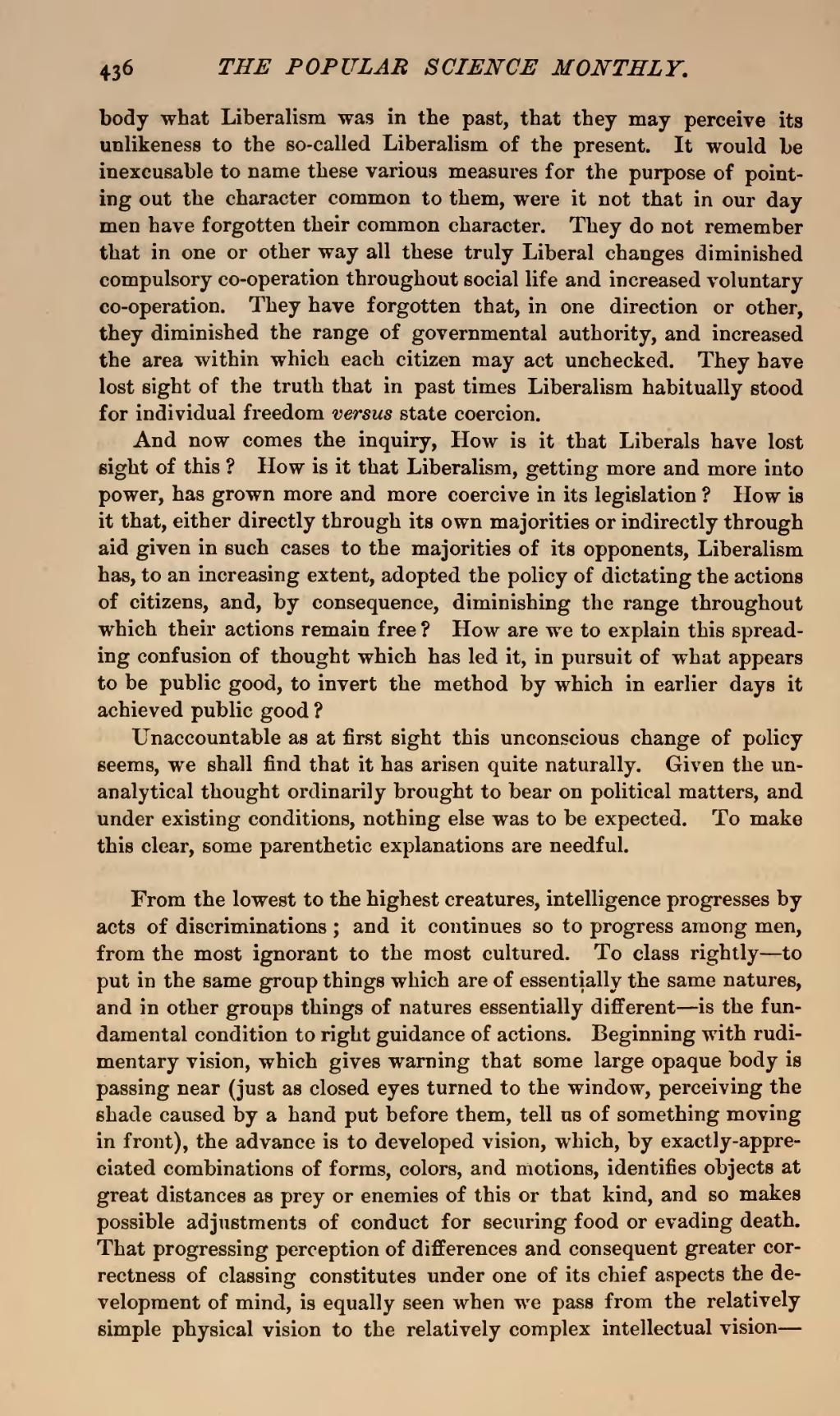body what Liberalism was in the past, that they may perceive its unlikeness to the so-called Liberalism of the present. It would be inexcusable to name these various measures for the purpose of pointing out the character common to them, were it not that in our day men have forgotten their common character. They do not remember that in one or other way all these truly Liberal changes diminished compulsory co-operation throughout social life and increased voluntary co-operation. They have forgotten that, in one direction or other, they diminished the range of governmental authority, and increased the area within which each citizen may act unchecked. They have lost sight of the truth that in past times Liberalism habitually stood for individual freedom versus state coercion.
And now comes the inquiry, How is it that Liberals have lost sight of this? How is it that Liberalism, getting more and more into power, has grown more and more coercive in its legislation? How is it that, either directly through its own majorities or indirectly through aid given in such cases to the majorities of its opponents, Liberalism has, to an increasing extent, adopted the policy of dictating the actions of citizens, and, by consequence, diminishing the range throughout which their actions remain free? How are we to explain this spreading confusion of thought which has led it, in pursuit of what appears to be public good, to invert the method by which in earlier days it achieved public good?
Unaccountable as at first sight this unconscious change of policy seems, we shall find that it has arisen quite naturally. Given the unanalytical thought ordinarily brought to bear on political matters, and under existing conditions, nothing else was to be expected. To make this clear, some parenthetic explanations are needful.
From the lowest to the highest creatures, intelligence progresses by acts of discriminations; and it continues so to progress among men, from the most ignorant to the most cultured. To class rightly—to put in the same group things which are of essentially the same natures, and in other groups things of natures essentially different—is the fundamental condition to right guidance of actions. Beginning with rudimentary vision, which gives warning that some large opaque body is passing near (just as closed eyes turned to the window, perceiving the shade caused by a hand put before them, tell us of something moving in front), the advance is to developed vision, which, by exactly-appreciated combinations of forms, colors, and motions, identifies objects at great distances as prey or enemies of this or that kind, and so makes possible adjustments of conduct for securing food or evading death. That progressing perception of differences and consequent greater correctness of classing constitutes under one of its chief aspects the development of mind, is equally seen when we pass from the relatively simple physical vision to the relatively complex intellectual vision—

